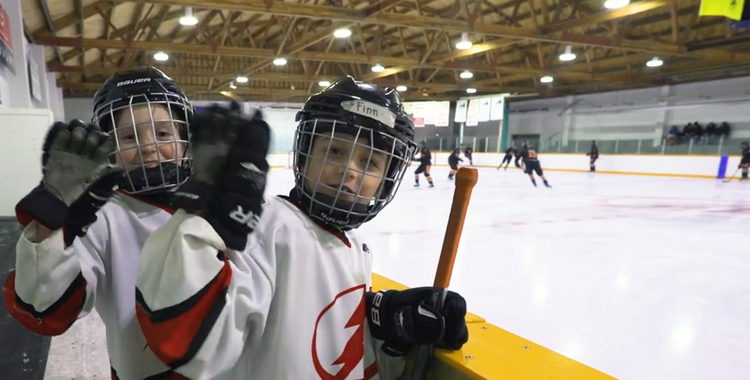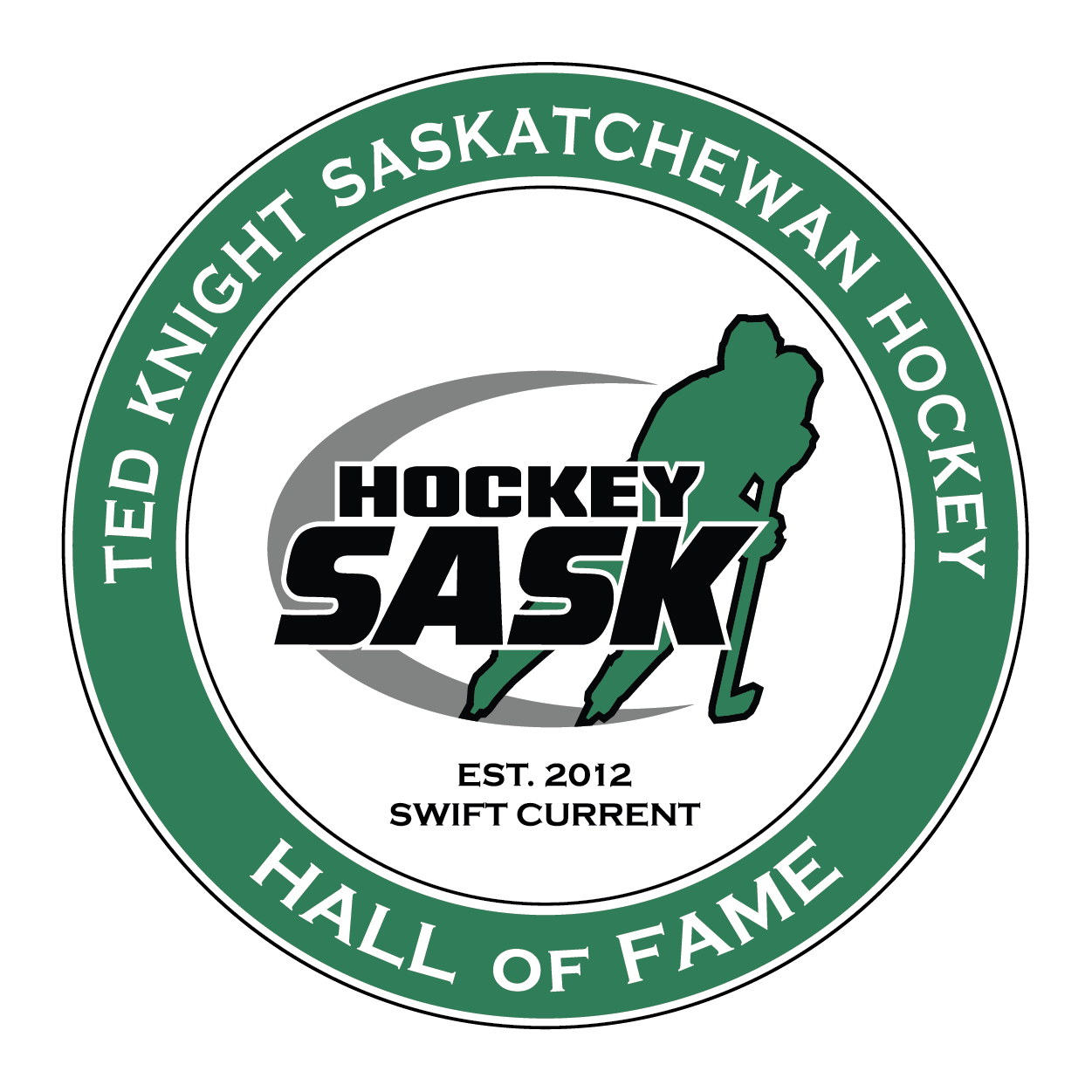From Theodore to Trailblazer: Q&A with Saskatchewan Hockey Coach Chace Sperling
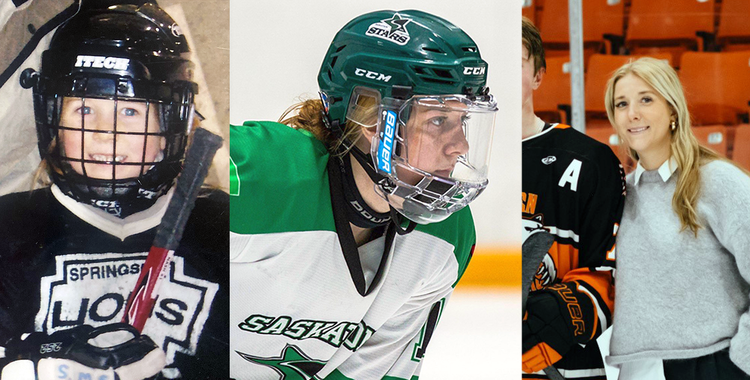
Sep 19
2025
By Hockey Saskatchewan
For National Coaches Week 2025, Hockey Saskatchewan sat down for a Question and Answer (Q&A) with Chace Sperling, a 23-year-old coach originally from Theodore who continues to make her mark in the game.
Before stepping behind the bench, Sperling was an accomplished player. A graduate of the Sask First high-performance program, she earned silver with Team Saskatchewan at the 2019 Under-18 (U18) Women’s National Championship, which remains the province’s top finish at the event.
During her tenure in the Saskatchewan Female U18 AAA Hockey League, the defender also won a national silver medal with the Saskatoon Stars, who made back-to-back trips to the Esso Cup in 2018 and 2019.
She stepped behind the bench last season and became one of the first women coaches in the Saskatchewan Male AAA Hockey League (SMAAAHL), serving as an assistant with the Yorkton Maulers. Her rookie year behind the bench drew praise for her professionalism, leadership, and ability to connect with players.
“Sperling made a remarkable impression … She earned immediate respect from the players with her knowledge, dedication, and professionalism,” Yorkton Maulers Head Coach Jason Gordon said.
“Chace consistently provided valuable feedback, helping players push themselves and reach higher levels of hockey. Her presence and leadership set a strong example and opened doors for the next generation of coaches.”
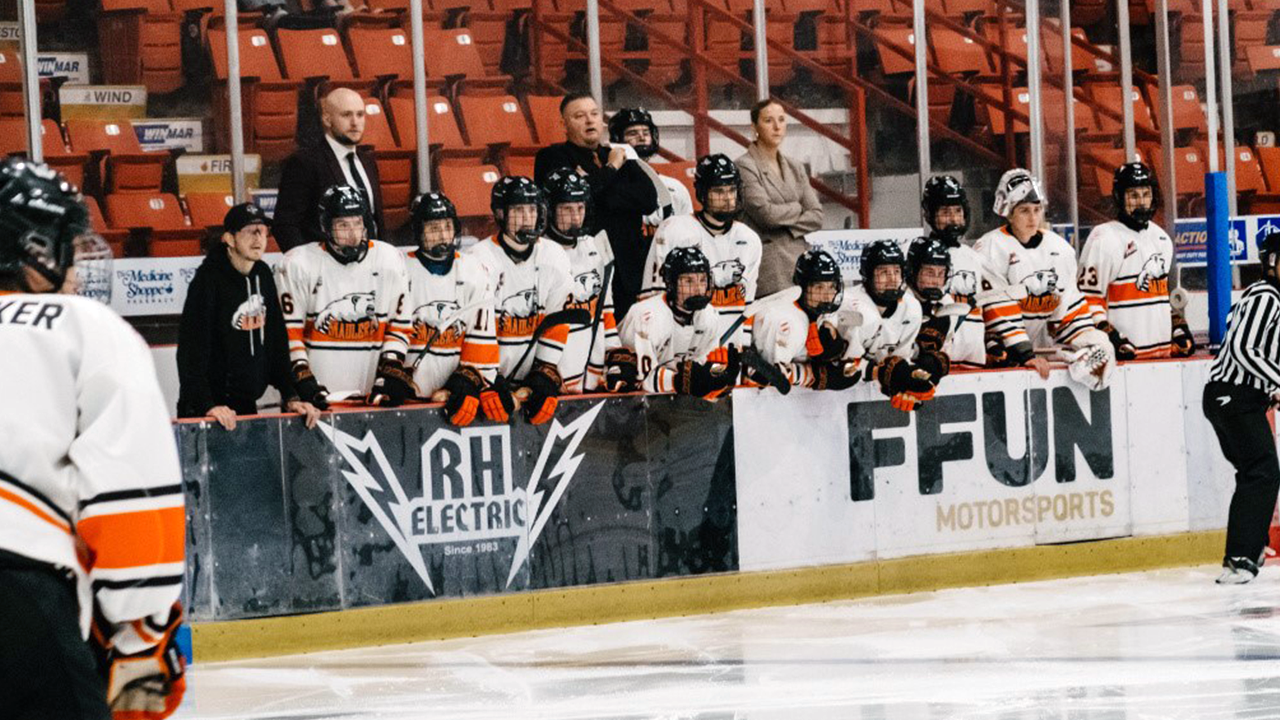
With the 2025-26 season getting underway, Sperling has shifted her focus to rural grassroots hockey, coaching a girls' teams while beginning a new chapter in Rocanville, which is the hometown of another trailblazer, Jessica Campbell. The fellow Team Saskatchewan alumna became the first full-time woman assistant coach in the National Hockey League (NHL) last season with the Seattle Kraken.
“This year, Chace is taking on a change in her professional career, moving to Rocanville, but she continues to give back to the game and will remain a highly sought-after coach for many years to come,” Gordon said.
Now, as Sperling continues to inspire the next generation of players, Hockey Saskatchewan asked her about the journey that started as a small-town player and grew into a coaching role model.
Q&A with Chace Sperling:
What first drew you to hockey, and how did your small-town community shape your passion for the game?
“Growing up in Theodore, the rink was the centre of everything. It wasn’t just about hockey; it was where the community came together. Coaches, parents, and volunteers made it possible for us kids to play, and that support is what made me fall in love with the game. Looking back, I think that experience, starting so young and surrounded by that kind of community, is what sparked my passion to eventually give back through coaching.”
How did your Sask First and Team Saskatchewan experiences shape your development as a player and prepare you for coaching?
“Being part of Sask First and representing Team Saskatchewan was an incredible experience. That environment pushed me to raise my game every single day. I learned discipline, preparation, and the importance of believing in myself, even when the competition felt intimidating. Just as importantly, the coaches I had at that level built my confidence and showed me how much impact a coach can have on an athlete’s mindset. That lesson has stuck with me and is something I strive to pass on in my own coaching.”
What motivated you to move into coaching with the Yorkton Maulers, and how was that experience?
“When my playing career wrapped up, I knew I wasn’t done with the game. Coaching felt like the natural next step because I wanted to give back and stay connected to hockey. Joining the Yorkton Maulers was an incredible opportunity; it pushed me out of my comfort zone and helped me grow quickly as a coach. The speed of the game, the intensity, and the commitment of those athletes was inspiring, and I learned just as much from the players as I hope they learned from me.”
As one of the first women coaches in the SMAAAHL, what did that milestone mean to you, and how do you hope it inspires others in hockey?
“It was definitely a proud moment, but more than anything I hope it shows other women that there’s a place for us in all areas of hockey. For me, it wasn’t about being one of the firsts, it was about proving that women belong in these spaces and can add value. If even one young woman looks at my journey and thinks, ‘If she can do it, maybe I can too,’ then that milestone means even more.”
How does it feel to be giving back to the grassroots game this season with two girls' Under-13 teams in southeast Saskatchewan?
“It feels amazing to be back working with female athletes, especially at an age where they’re just starting to develop a real passion for the game. To be able to help guide them, encourage them, and hopefully inspire them the way my coaches inspired me is such a privilege. I know firsthand how much impact a coach can have and being able to give back to the game and the community that gave me so much is really special.”
Every coach has influences along the way. Who have been the mentors or role models that shaped your outlook as a coach?
"I’ve been lucky to have some incredible coaches and mentors throughout my career. From small-town volunteer coaches to high-performance staff, each one left an impression on me. Some taught me the technical side, some showed me the importance of discipline and preparation, and others taught me the value of building relationships with players. I’ve also leaned on other female coaches and role models who’ve paved the way, reminding me that we don’t have to fit a mold to succeed in this role."
What advice would you give to young athletes or aspiring coaches following in your footsteps?
“My biggest advice: don’t be afraid to step outside your comfort zone. Whether it’s trying out for a team, taking on a new challenge, or stepping behind the bench for the first time, growth happens when you take risks. Believe in yourself, trust the process, and surround yourself with people who support you. And most importantly, never forget why you started playing in the first place. That love for the game is what will carry you through every stage of your journey.”
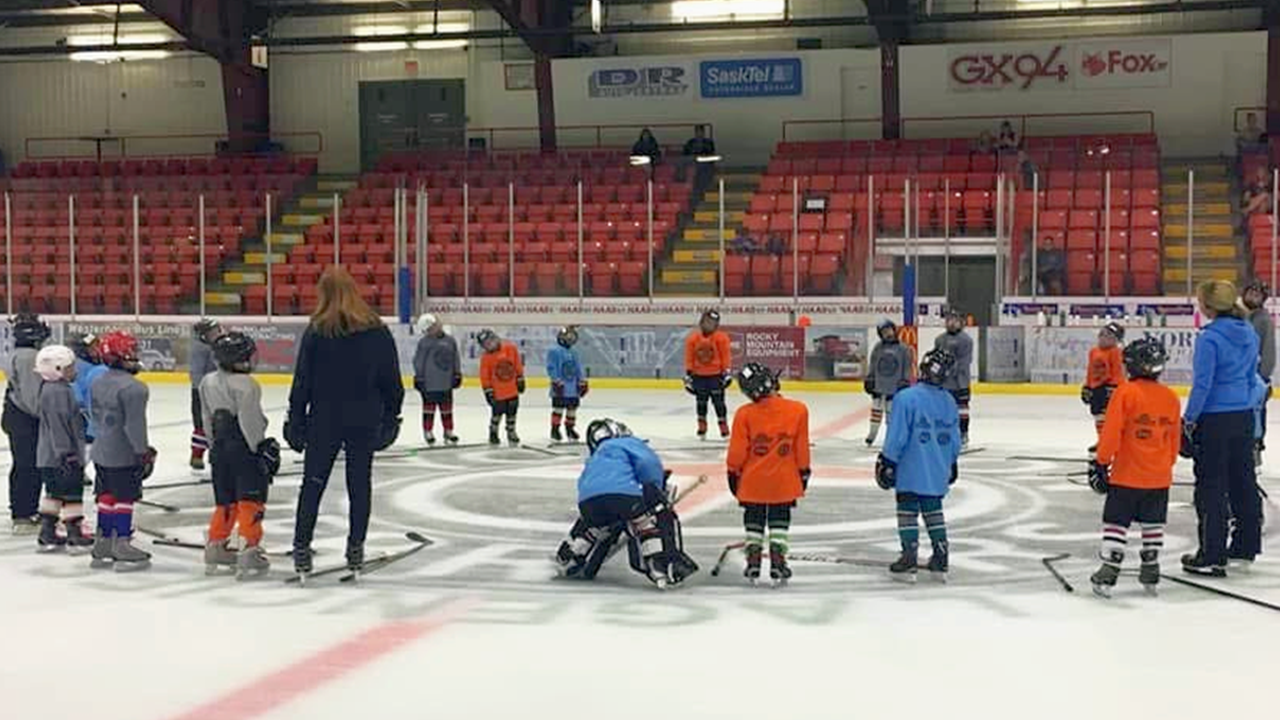
Related Articles
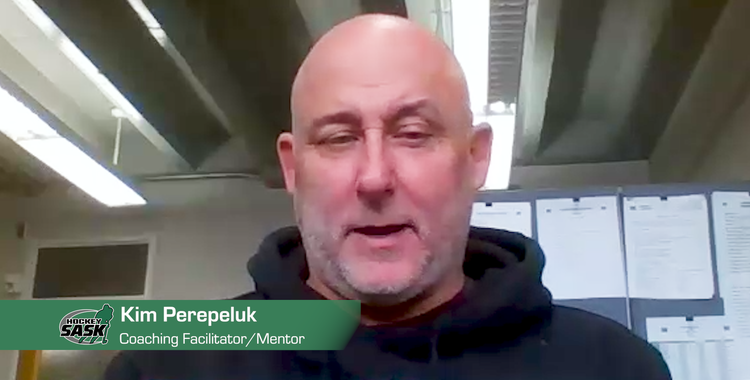
Around the Rink: Body Checking with Kim Perepeluk – WATCH

Hockey Saskatchewan Membership Presentation: December – WATCH

Hockey Saskatchewan Membership Presentation: January – WATCH

Hockey Saskatchewan Membership Presentation: January – WATCH
